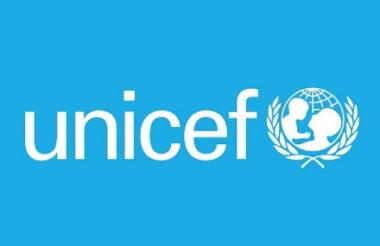Unicef UK has raised a record income for the third consecutive year, recent accounts have shown.
Accounts for the year ended 31 December 2022 show that the charity’s total income stood at £179.5m last year, with £55.7m raised to support children and families affected by the war in Ukraine.
Following an anti-racism review, Unicef UK said that it will implement an “anti-racism action plan” from this year.
As part of its new strategy for 2023-26, Unicef UK aims to fundraise £650m and “find efficiencies so that we generate more pence in the pound for programmes for children”.
Record fundraising year
Unicef UK raised a record £179.5m last year, a 26.6% increase on the £141.8m it recorded the year before.
The accounts say that the increase was largely driven by the £55.7m raised for the Ukraine emergency campaign and is “testament to the outstanding work of Unicef UK in the year and the incredible support of the UK public and our new and existing partners”.
Income raised through corporate partnerships increased by nearly £20m to £43.9m while income from donations and legacies rose from £133.9m to £168.9m.
“We have continued to see a shift in donor preference to donate higher value one-off donations, rather than entering the traditional monthly giving programme. Overall, we have seen a 10.5% increase in our marketing income compared to 2021,” the accounts read.
“In line with our strategy, our overall income profile has continued to change over recent years, with a growing proportion of income generated by our partnerships and philanthropy teams (including corporate partnerships, major donors, foundations and trusts and government grants). In 2022, 53% of our total income was raised through these income streams (44% in 2021).”
Meanwhile, total expenditure increased by 32.4%, from £106.1m to £140.6m.
“Of this, £107.6m was for specific overseas programmes or countries chosen by our donors, £25.9 million for Unicef core programmes funded through unrestricted donations, and £7.1m for Unicef UK’s advocacy and programmes in the UK, such as our Baby Friendly initiative and Rights Respecting Schools Award,” the accounts say.
Unicef UK said that it is its “ambition to continue to reduce the cost of fundraising but without sacrificing innovation and transforming to be more digital and data-led”.
New strategy
Unicef UK launched its new 2023-26 strategy last year “amid the ongoing devastating impacts of conflict, Covid-19, climate change and other emergencies on the lives and rights of children in countries and communities across the world”.
As part of the strategy, the charity hopes to sustainably grow its income to £650m “and find efficiencies so that we generate more pence in the pound for programmes for children”.
Its accounts say: “The charity sector itself is transforming: our competitors now include commercial businesses that increasingly focus on purpose and impact. Audiences and partners are more sophisticated in their expectations. Employee expectations have evolved too. Our strategy must respond to these external shifts.”
Anti-racism action plan
Last year, an independent report found that people of colour at Unicef UK regularly experienced covert racism and that the charity had “no targeted and specific process on how to report and address racism”.
In its latest accounts, Unicef UK said that it delivered “a menu of learning and training opportunities with a focus on inclusive behaviours, anti-racism and inclusive leadership” during the year under review.
“To develop a safer and open culture we commissioned the support of an external consultant to lead a review on embedding anti-racism into our organisation. Our anti-racism review provided a set of recommendations that are the basis for an anti-racism action plan to be implemented from 2023.”
Related articles











